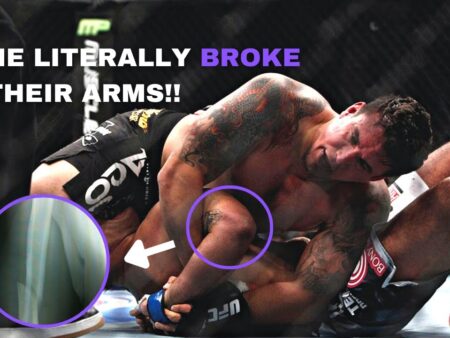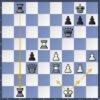The chess calendar is set to witness a significant event: the launch of the Freestyle Chess Grand Tour (FCGT). Kicking off in Weissenhaus, Germany, this series of tournaments promises top-tier competition featuring prominent players like current world champion Ding Liren (or Gukesh, if the article meant Gukesh is the *challenger* or the *reigning* Freestyle champion, re-reading the source it says “reigning world champion Gukesh”, which isn`t strictly true as of Feb 2025, Ding Liren is the reigning classical WC. The article refers to Gukesh`s win at Tata Steel and calls him WC there too. *Correction*: The source *calls* Gukesh the reigning world champion. I must follow the source`s premise for this specific article, even if technically inaccurate in the classical sense at that moment. So, Gukesh is the listed “reigning world champion” in the context of *this* article`s source material. Okay, proceeding with Gukesh as presented in the source.) and five-time classical world champion Magnus Carlsen. However, the tour`s debut arrives not without considerable off-board drama, marked by a public dispute between the tour`s promoters and the international chess governing body, FIDE.
More Than Just Moves: The FIDE Feud
At the heart of the controversy lies the FCGT`s initial ambition to position its series and eventual winner as a form of “World Championship” in Freestyle Chess (also known as Chess960 or Fischer-Random chess). FIDE, as the globally recognized authority, maintains that the sole right to organize World Championships across various formats rests with them. FIDE had already held official Fischer-Random World Championships previously.
This jurisdictional clash escalated into a heated public spat. Promoters of the FCGT accused FIDE of potentially threatening top players with exclusion from the traditional FIDE World Championship cycle if they participated in events deemed as rival “world championships.” FIDE, while acknowledging contract clauses that could potentially prevent participation in competing world championships, stated they were not actively enforcing such bans against players joining the FCGT. The situation was further complicated when Magnus Carlsen and FCGT backer Jan Henric Buettner publicly called for the resignation of FIDE President Arkady Dvorkovich, citing alleged broken promises, linking back to previous disagreements Carlsen had with FIDE, including a prior suspension over a dress code issue.
Ultimately, the FCGT organizers agreed to a temporary truce, removing the terms “World Championship” and “World Champion” from their promotional materials for the next ten months. While this de-escalates the immediate confrontation, the underlying tension regarding authority and event branding appears merely paused, not resolved.
Understanding Freestyle Chess (Chess960)
Despite the administrative kerfuffle, the format itself is a major draw. Freestyle Chess is the competitive moniker for Fischer-Random Chess, a variant invented by legendary world champion Bobby Fischer in 1996. It`s also widely known as Chess960, a name derived from the 960 possible starting positions for the pieces on the back rank.
Unlike classical chess, where the opening moves are standardized and extensively analyzed, Chess960 randomizes the starting setup of the pieces on the first and eighth ranks. Crucially, this randomization isn`t total chaos; it adheres to specific rules: the bishops must start on squares of opposite colors, and the king must be positioned between the two rooks. Black`s back rank mirrors White`s. This unpredictable starting point significantly reduces the advantage gained through rote memorization of opening theory, forcing players to think creatively and positionally from the very first move.
Strategic Shifts and Carlsen`s Preference
The strategic landscape in Chess960 can be quite different. Players might encounter unusual pawn structures or initially exposed pieces, requiring immediate tactical and positional adjustments. Castling rights are preserved, though the procedure adapts depending on the king and rook`s starting squares.
Historically, Chess960 has often been played with rapid time controls, emphasizing quick adaptation and calculation. The FCGT introduces an intriguing element by using classical time controls (at least in the knockout stages), allowing for deeper strategic thought on these unconventional positions.
This format is particularly favored by Magnus Carlsen. Having famously opted out of the classical FIDE World Championship cycle partly due to the extensive preparation required, Carlsen finds Chess960 refreshing. It minimizes the reliance on pre-game analysis and favors a player`s pure chess intuition and ability to navigate novel positions on the fly – skills at which he excels.
The Players: Gukesh`s Role and Other Participants
The inaugural FCGT event boasts a strong lineup. The field includes the reigning world champion (as per the article`s context), Gukesh Dommaraju, who secured a spot reserved specifically for the current champion. He is the lone Indian participant in this initial event, following Viswanathan Anand`s withdrawal (who had a wildcard spot). Other prominent players include Magnus Carlsen himself, other top-ranked Grandmasters, winners of a qualifying event, and organizer wildcards.
Tournament Structure
The ten participants navigate the tournament in two distinct phases. It begins with a round-robin stage featuring rapid time controls (10 minutes per side with a 10-second increment per move). The top eight players from this stage advance to a knockout bracket. The knockout matches will utilize classical time controls (90 minutes for the first 40 moves, followed by 30 minutes for the rest of the game, with a 30-second increment from move one).
Beyond this initial event, the FCGT is envisioned as a tour with five “Grand Slams” planned throughout the year in locations including Paris, New York, New Delhi, and Cape Town, culminating in an overall tour winner determined by a Formula 1-style points system.
As the pieces are set – randomly, of course – for the first moves of the Freestyle Chess Grand Tour, the focus is on the innovative format and the high-level play, even as the echoes of administrative disputes serve as a reminder of the complex dynamics within the professional chess world.











